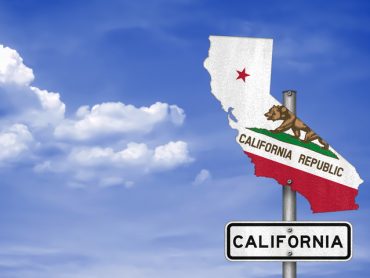Back to the Hotel Future
We recently passed the much-hyped October 21, 2015 date from the 1989 movie Back to the Future Part II. While they certainly came close with many of its predictions, the Chicago Cubs did not win the World Series and we are not driving in flying cars. Nevertheless, it’s a fun movie and one that I am sure you all remember fondly. And, as the movie correctly foresaw, we now have another epic Star Wars film out in theaters.
While I failed to capitalize on the media sensation of publishing BTTF-related articles in and around the October 21st anniversary, any dose of time travel fiction is still worthy of mention. As it relates to the plot of this classic film franchise, if we were to project another 30 years into the future, what do you think our industry will look like?
Start by thinking about it looked 30 years ago; no internet, no mobile apps, no cell phones, no OTAs and no Airbnb. Looking into my crystal ball, here are some of my predictions for October 21, 2045:
- Massive mergers where the OTAs buy the hotel chains. Look at it this way. Expedia and Priceline have bought out just about every online competitor creating, in essence, a duopoly. The only risk for their business is to be starved out of guestroom inventory. As of now, rate parity has kept them in the game long enough for hotel customers to be converted to OTA customers. But what happens when rate parity is abolished via court rulings and the major chains start to offer far better deals on their own branded sites? With the inventory advantage, they’ll need to take drastic action to stay in the game. Imagine if Expedia bought Starwood, Hilton, Marriott or any combination of the three. Vertical integration solves this problem handily.
- Airbnb is a superpower of our industry. With more rooms in more cities than any other brand, this is already a trend on the upswing. The sharing economy is here to stay. Airbnb may soon become publically traded and undoubtedly it will have a massive governmental lobbying arm to prevent any pipsqueak regional or local hotel association from trying to strong arm any legislative restrictions.
- Mobile communications go completely hands free. In the future, to book a room your ‘Super-Siri’ will take care of you, even recording your preferences and negotiating the best rates on your behalf. You will receive a confirmation which is electronically stored on your mobile device and it can easily be projected onto a surface if you need to share it with others.
- Mobile everything. Your accommodation’s check-in will be automatic. As you enter the property, your room assignment will be provided to you with your smartphone chiming your favourite tune and announcing your room number. Then your mobile device will unlock the door, adjust the drapes, turn on the HVAC, set your TV to your favourite sports channel and automatically start downloading your messages (most of which will be video files). I am hoping that it will also open a bottle of wine for me, Chateau Margaux of course, but I think that part will still require my intervention. Payment will be through the mobile wallet as well. You will never see or touch any paper (except maybe toilet paper) throughout your entire stay.
- Conversions. Many limited-service properties will be taken off the market and converted to long-term care facilities. With those boomers who are left now in their 90s, there will be nowhere else to put them. And the poor Gen Xers with no money will be there in droves as well.
- Independent properties will prosper in niches. Guests will flock to wellness retreats, sports inns, spa resorts, historic hotels, ski lodges, golf properties and casino/gaming facilities. Those properties that focus on their core competencies will see business boom.
- Marketing will be limited to infographics, photos and videos. Every action will be built around mobile devices. There will be scant text and descriptions on websites. Infographics will be used to explain and provide most technical information.
- Branding will explode. With no advertising to create brand awareness, hotels will borrow awareness from established products, even those that have very limited relationship to the category. There will be McDonalds Inns, Burberry B&Bs, Apple Resorts, IBM Training Centers, Lexus Spas and FedEx Overnight Motels.
- Food will continue to be a key differentiator. Hotel services will be all but standardized as will the amenities offered. A key difference will be foodservices. Great hotels will be those that are recognized for the quality and inventiveness of their F&B.
- The more things change… Hoteliers will be faced with the same issues of finding good line staff who understand service. Housekeeping will continue to be the gold standard upon which a hotel is judged. With no front desk or checkout, the only aspect that cannot be strictly databased, computerized and quantified is cleaning a bathroom and changing a bed.
(Image courtesy of Universal Pictures. Article by Larry Mogelonsky, published in Hotels Magazine on December 29, 2015)





